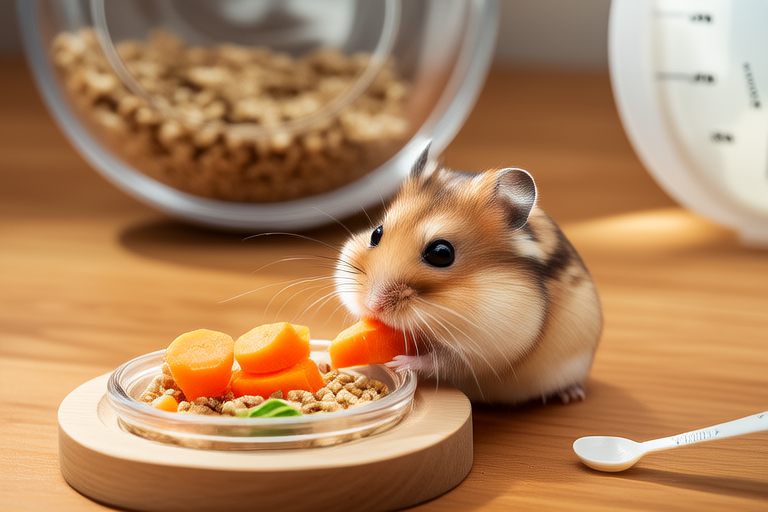The Ultimate Cheat Sheet for Feeding Your Hamster Right
Proper nutrition is essential for the health and longevity of your hamster. As a responsible pet owner, understanding what your hamster requires in terms of diet can significantly impact its well-being. This guide provides an overview of the dietary needs of hamsters, including the types of food that are beneficial, the risks associated with improper feeding, and tips for ensuring your hamster remains healthy and happy.
Basic Dietary Needs
Your hamster’s diet should be balanced and varied, providing all the nutrients it needs to thrive. The core of their diet should consist of high-quality commercial hamster food, which includes seeds, grains, and pellets designed specifically for their nutritional requirements. Additionally, fresh vegetables, fruits, and occasional protein sources are important supplements.
Recommended Types of Food
Fresh Vegetables
Vegetables are a great source of vitamins and minerals for your hamster. Dark leafy greens like spinach, kale, and dandelion leaves are particularly beneficial. Other safe options include bell peppers, carrots, and cucumbers. However, always introduce new vegetables gradually to monitor for any adverse reactions.
Fruits
Fruits should be given sparingly as they contain natural sugars that can cause obesity or dental issues. Small pieces of apple, banana, or berries can be offered occasionally. Always remove the seeds from apples and pips from grapes before feeding.
Grains
Whole grains such as oats, barley, and brown rice can be part of a hamster’s diet. These grains provide essential carbohydrates and fiber. Avoid processed grains and those high in sugar or salt.
Proteins
Protein sources can include boiled eggs, cooked chicken, or small amounts of cottage cheese. These should be introduced carefully, as some hamsters may have difficulty digesting dairy products.
Portion Sizes and Frequency of Feeding
Hamsters generally need about one tablespoon of dry food per day, supplemented with a few pieces of fresh produce. Feed them in the evening when they are most active. Fresh food should be removed after a few hours to prevent spoilage.
Risks of Overfeeding and Underfeeding
Overfeeding can lead to obesity, which increases the risk of heart disease, diabetes, and other health problems. Conversely, underfeeding can result in malnutrition, weakness, and a weakened immune system. Regularly check your hamster’s body condition and adjust portions accordingly.
Foods to Avoid
Avoid feeding your hamster foods that are toxic or harmful. These include chocolate, caffeine, alcohol, avocado, rhubarb, and raw beans. Also, avoid overly salty or sugary treats, as these can lead to health issues.
Tips for Introducing New Foods
When introducing new foods, start with very small quantities and observe your hamster closely for any signs of digestive upset or allergic reactions. Gradually increase the amount over several days if no adverse effects are observed.
Maintaining Water Cleanliness
Ensure your hamster has access to clean, fresh water at all times. Change the water daily and clean the water bottle thoroughly to prevent bacterial growth. Some hamsters prefer drinking from a bowl rather than a bottle; if this is the case, ensure the bowl is heavy enough to prevent tipping.
Special Dietary Needs
Different breeds and ages of hamsters may have specific dietary needs. Syrian hamsters, being larger, often require more food compared to dwarf species. Younger hamsters may benefit from softer foods until their teeth are fully developed. Older hamsters might need a diet lower in fat and higher in fiber.
Monitoring Weight and Health
Regularly weigh your hamster and keep track of changes in weight. If you notice significant weight gain or loss, consider adjusting the diet accordingly. Consult a veterinarian if you suspect any underlying health issues related to diet.
Conclusion
Feeding your hamster correctly is crucial for its health and happiness. By following this cheat sheet, you can ensure your pet receives a balanced diet that meets its nutritional needs. Remember, every hamster is unique, so pay attention to individual preferences and health conditions. With proper care and attention to diet, your hamster will live a long and healthy life.
